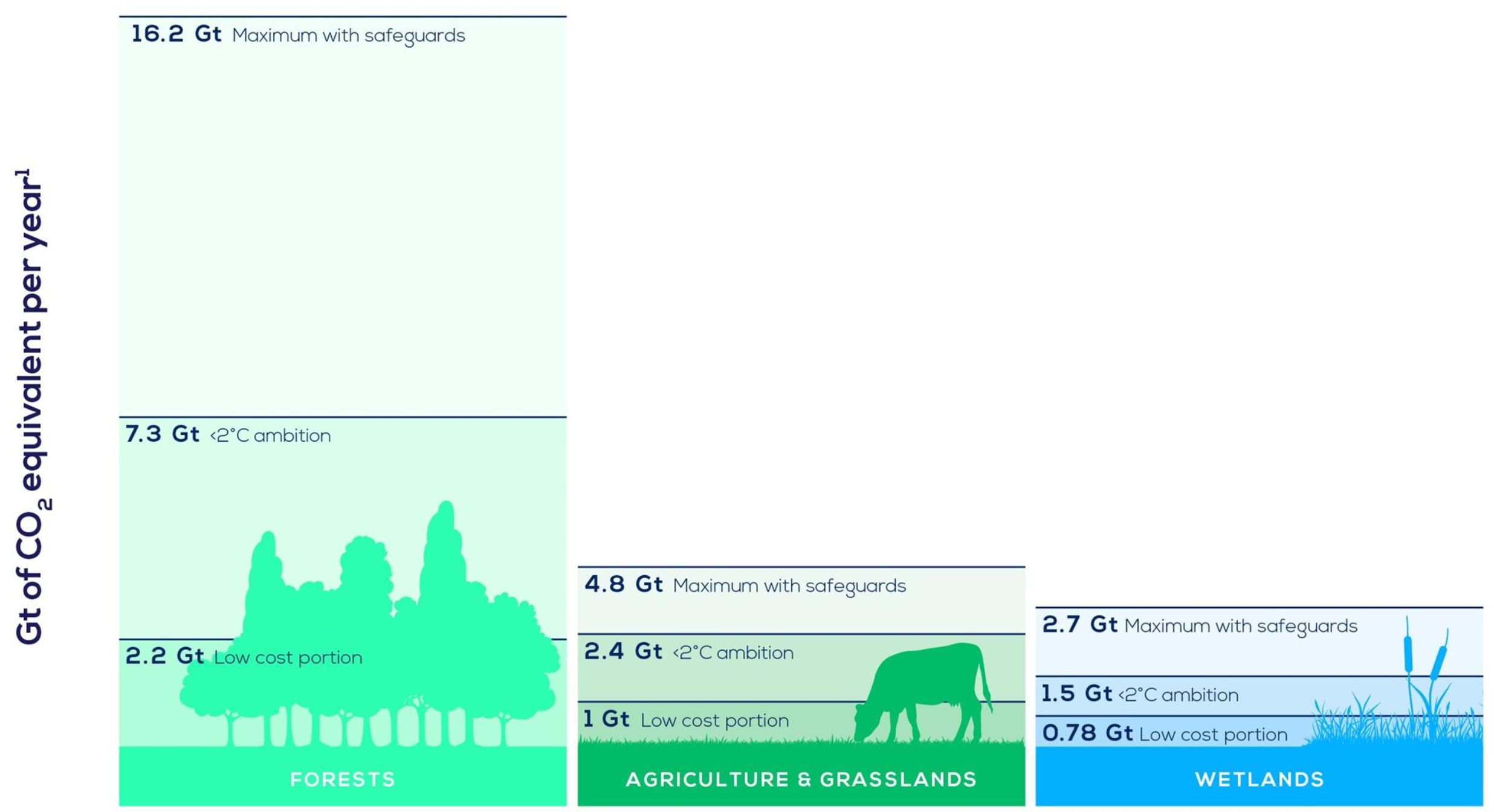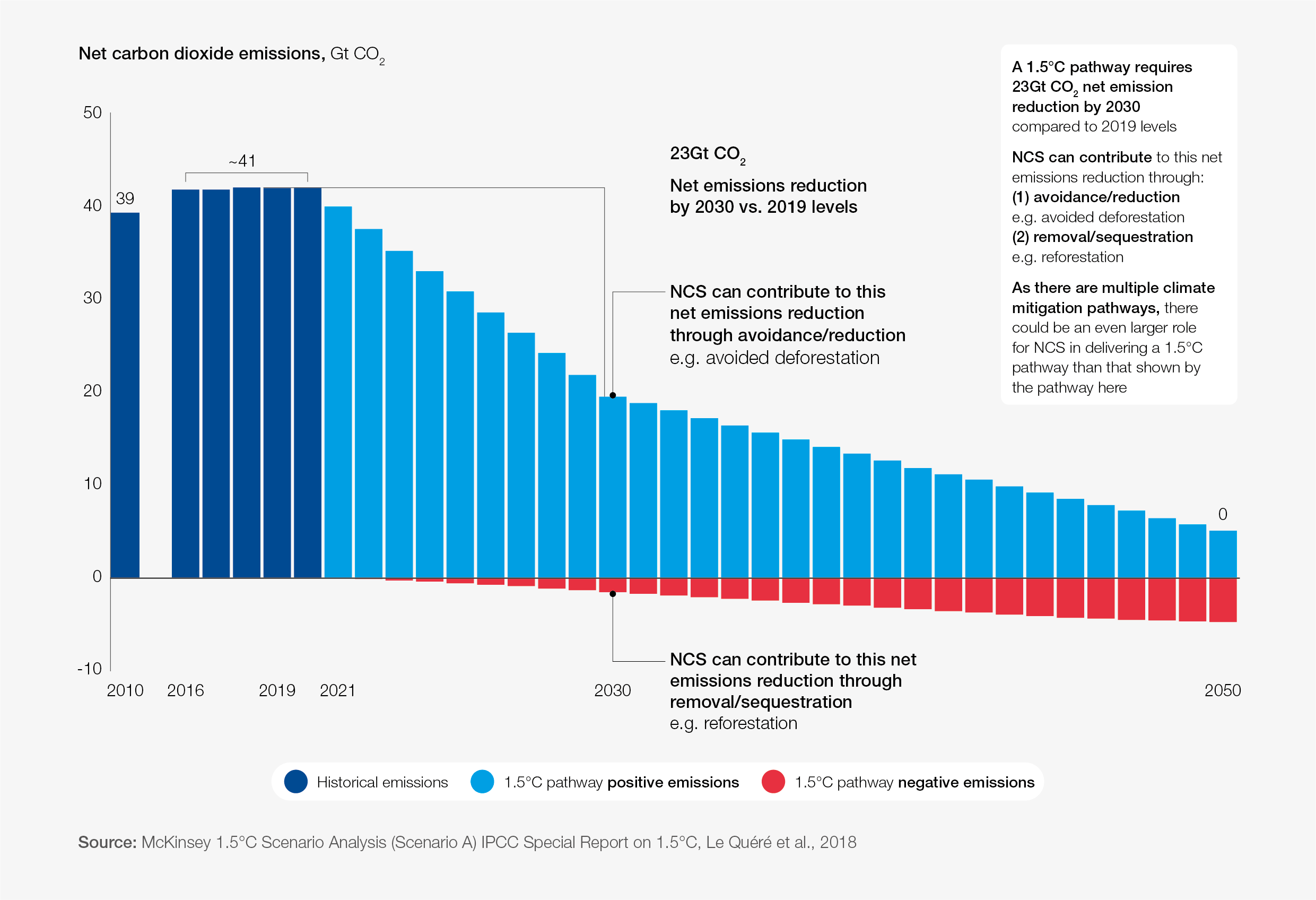Why there is a growing business case in India for natural climate solutions

Private sector investment is needed to close the natural climate solutions funding gap. Image: Sundarbans National Park/Creative Commons.

Get involved with our crowdsourced digital platform to deliver impact at scale
Stay up to date:
Climate and Nature
- An increasing number of Indian companies are recognizing the business case for natural climate solutions (NCS) investments, with around 70% integrating NCS into their corporate commitments
- NCS such as mangrove and forest conservation and restoration and climate-smart agriculture can provide around 30% of the emissions reductions needed to limit global warming to 1.5°C by 2030.
- Clear regulatory frameworks, incentives and avenues for public-private partnerships are needed to translate this growing interest into increased private-sector funding for nature.
A new study conducted by the World Economic Forum, in partnership with the Confederation of Indian Industry and IORA Ecological Solutions, finds that 89% of the largest Indian companies have a sustainability strategy and nearly half have a net-zero strategy. When asked about the business case, companies expressed particular interest in the role of NCS in carbon sequestration to contribute to corporate net-zero goals, elevate brand image and increase business resilience.
Moreover, over 90% of survey respondents plan to either significantly or moderately increase their NCS investments over the next five years. And 54% of respondents mention they plan to start or increase their purchase of forest carbon credits in the next five years – compared to 7% currently purchasing such credits.
What is the World Economic Forum doing on natural climate solutions?
This rising level of corporate interest holds promise at a time when $44 trillion of the global economy is at high or moderate risk from nature loss. NCS represent a key strategy to address the dual crises of climate change and biodiversity loss and strengthen the resilience of the world’s socio-economic systems. NCS encompass a range of actions aimed at safeguarding, conserving, restoring, and sustainably managing terrestrial, freshwater, coastal, and marine ecosystems while providing livelihood benefits. NCS could deliver up to one-third of net emission reductions required by 2030.
The stakes are high in a country where climate-related risks could cost the nation 3% of its GDP annually, and an estimated 30% of the land is degraded with significant consequences for agri-rural livelihoods. Commitments made under India’s NDC to the Paris Agreement as well as the UNCCD include creating an additional sink of 2.5 to 3 billion tonnes of CO2e through additional forest and tree cover and restoring 26 million hectares of degraded land by 2030.
Closing the natural climate solutions funding gap
Private sector investment is acutely needed. Today, as is the case globally, current investments in NCS in India are largely public-sector driven and fall short of what is required. The total funding gap is substantial, with an estimated $161.9 billion required by 2030 in the forestry sector alone.
Yet the survey showed that significant barriers need to be overcome to unlock the full potential of corporate investment in NCS. Most companies (62%) reported that their investments currently come from Corporate Social Responsibility (CSR) budgets and the majority are quite small (under $1 million). A further 35% of corporates surveyed indicated that they invest in NCS to meet national or global mandatory regulatory requirements. This suggests that while companies recognize the potential business case linked to their core sustainability strategies and business resilience, this has yet to translate into investment decisions.
Four areas emerged that represent barriers to investment, but that respondents cited as factors that would influence their decisions to scale their NCS investments:
- Clarity on regulatory frameworks: Clarity on nature-related regulatory frameworks that enable NCS investments, including the Green Credit Program, as well as the compliance and voluntary carbon markets, where companies need more information regarding the issuance, ownership, and international transfer of carbon credits.
- Land ownership complexities: Procedural support in navigating the complexities of land ownership and opportunities for trusted and functional multi-stakeholder partnerships including with state governments is needed.
- High-quality NCS projects: The availability of high-quality projects with clear environmental and social outcomes with strong monitoring, reporting, and verification (MRV) frameworks is crucial.
- Sector-specific business case: A stronger business case adapted to each industry sector that would help address concerns about uncertain returns on investment, high upfront costs, and a lack of alignment between the horizon of NCS projects and short-term financial priorities.
Clear policies and public-private partnerships are the way forward
India is developing new instruments, such as the regulatory carbon market and the Green Credits Initiative to contribute to net-zero goals. However, to seize the opportunities presented by NCS and attract private sector investment requires clear frameworks, guidelines and incentives.
This white paper is part of the work of 1t.org in India to foster public-private partnerships and corporate investment for forest landscape conservation and restoration. The findings intend to offer a better understanding of the current regulatory and investment landscape in India, highlight key opportunities and barriers for NCS investments, and put forward recommendations as input to public-private dialogue. 1t.org is the World Economic Forum’s Trillion Trees Initiative launched in support of the UN Decade on Ecosystem Restoration to serve the global restoration movement to conserve, restore and grow a trillion trees by 2030.
Don't miss any update on this topic
Create a free account and access your personalized content collection with our latest publications and analyses.
License and Republishing
World Economic Forum articles may be republished in accordance with the Creative Commons Attribution-NonCommercial-NoDerivatives 4.0 International Public License, and in accordance with our Terms of Use.
The views expressed in this article are those of the author alone and not the World Economic Forum.
The Agenda Weekly
A weekly update of the most important issues driving the global agenda
You can unsubscribe at any time using the link in our emails. For more details, review our privacy policy.
More on Forum InstitutionalSee all
Gayle Markovitz
April 28, 2024
Gayle Markovitz
April 27, 2024
Mirek Dušek and Maroun Kairouz
April 27, 2024
Kate Whiting
April 26, 2024
Spencer Feingold and Gayle Markovitz
April 19, 2024
Kate Whiting
April 17, 2024








